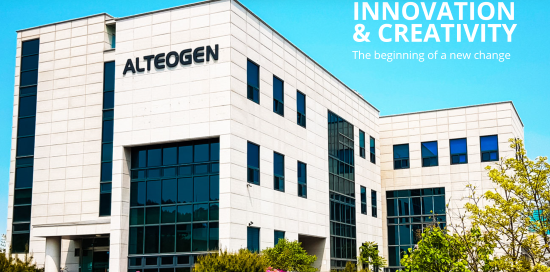Alteogen said Tuesday that it has registered a domestic patent for an improved antibody used in ALT-Q5, an ovarian cancer therapy, based on NexMab antibody-drug conjugate (ADC) technology used for developing ADC bio betters.

The antibody inhibits the activity by binding to a protein known as folate receptor alpha (FOLR1) present on the surface of tumor cells in ovarian cancer and plays a key role in developing ADC cancer therapy. ALT-Q5 is a modified antibody that helps ADC ovarian cancer therapy target the tumor cell surface easier with enhanced antigen binding by strengthening the binding of the previously used antibody.
The technology allows specific binding to FOLR1, widely spread over the surface of various cancer cells. Thus, it could be used to develop cancer therapies other than the ADC for ovarian cancer.
The company applied for a patent in the U.S, Europe, China, Japan, and Canada in 2020, and it recently decided to acquire the same rights in Korea. In addition, Alteogen confirmed superior anticancer efficacy of its ADC ovarian cancer medicine compared to the existing therapies and presented related study results in 2018.
Ovarian cancer is one of the top 10 cancers among women and has the highest mortality rate. According to Global Data, a market research firm, the global ovarian cancer treatment market is expected to reach $6.8 billion in 2028.
“Bristol Myers Squibb, a global pharmaceutical company, recently signed a $3.1 billion contract with Eisai to jointly develop an ADC treatment referred to as MORAb-202, a folate receptor alpha-targeting ADC, and the two companies are conducting a phase 1/2 clinical trials in the U.S.,” an Alteogen official said. “Strengthened binding to FOLR1 raises the possibility of developing ADC therapy for ovarian cancer, and the drug could be developed for treating other cancers as FOLR1 is widely spread on the surface of other cancer cells as well.”
The company has also transferred its human hyaluronidase technology to three global pharmaceutical companies to develop an anticancer drug for subcutaneous injection since 2019.

